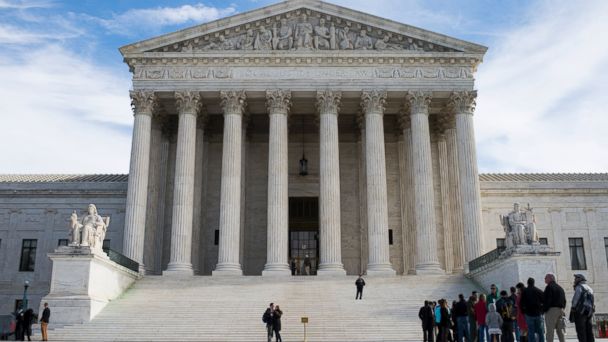Supreme Court Declines Challenge to NSA on Verizon Records, for Now

Credit: Bill Clark/CQ Roll Call/Getty Images
The Supreme Court today rejected a request to review whether a secret court exceeded its authority when it ordered Verizon to disclose records to the National Security Agency for telephone communications.
The Electronic Privacy Information Center (EPIC), a public-interest group dedicated to privacy concerns, had asked the court to overturn an order from the Foreign Intelligence Surveillance Court compelling Verizon to produce customer telephone records.
READ: NSA - Privacy Breaches Are 'Parts per Million'
Relief was warranted because the FISA court "exceeded its statutory jurisdiction when it ordered production of millions of domestic telephone records that cannot plausibly be relevant to an authorized investigation," the center argued.
Its lawyers say the records acquired by the NSA "detail the daily activities, interactions, personal and business relationships, religious and political affiliations, and other intimate details of millions of Americans."
The Obama administration argued against the Supreme Court's stepping in.
Only the government or the recipient of an order can seek review of an order, U.S. Solicitor General Donald B. Verrilli Jr. said in court papers. Verrilli argued that even if the order could be challenged by the privacy center, "the proper course would be to file suit in a federal district court."
The FISA court is composed of district court judges appointed by the chief justice.
READ: Supreme Court Kicks Off New Term As Hot-Button Issues Await
As is usually the custom, the Supreme Court did not explain its reasoning, but simply issued a one sentence denial in its order list.
Stephen I. Vladeck, a law professor at American University Washington College of Law, filed a brief in support of the Electronic Privacy Information Center in this case. But he says that even though the Supreme Court declined to step in at this juncture, there are other cases in the pipeline.
"I think the story is the extent to which there are other challenges to the metadata program pending in the lower courts," Vladeck said. "Although a denial may appear to sanction the government's conduct, such a respite will be temporary at best, given the challenges to metadata collection pending in the lower courts, including the ACLU's lawsuit in federal district court in Manhattan."